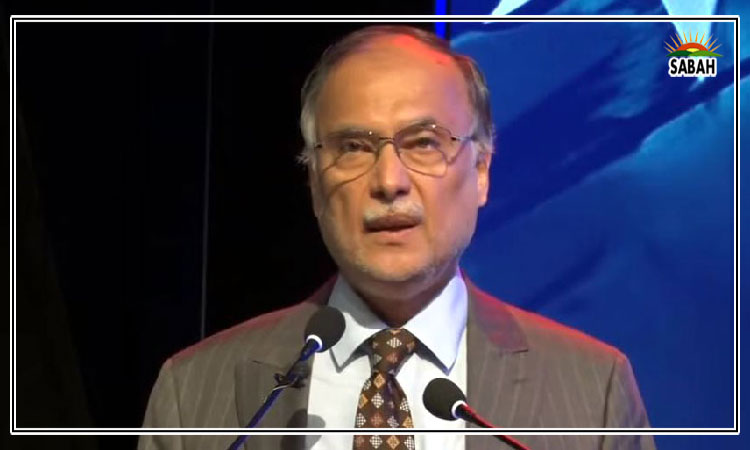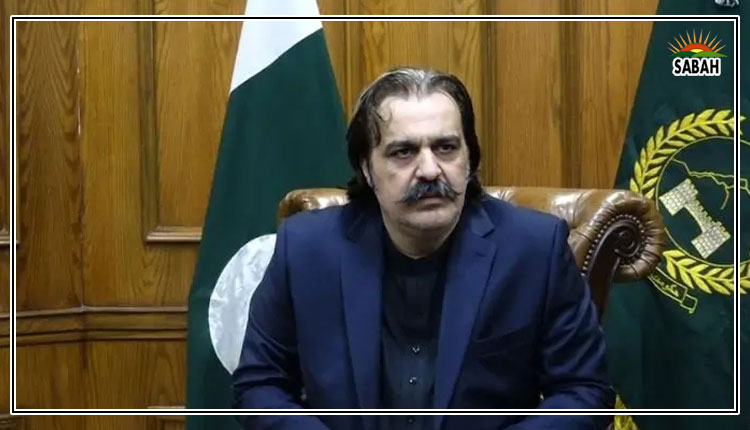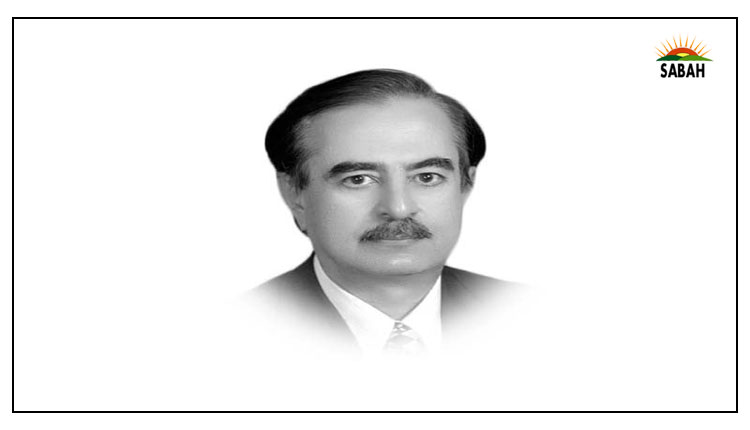Fallacies of partial economic diagnosis… Sahibzada Riaz Noor
A column by a former deputy State Bank Governor, scribing about the deadly sins of economic policy managers, recently appeared in the press. The analysis is apt but partial, like his peers i.e. Mahbubul Haqs, and thus leads to misleading conclusions.
The analysis primarily focuses upon certain weak areas of economic policy making and implementation. Over-concern with growth, consumption trumping savings, elitism, protectionism versus export orientation, lack of social investments and structural reforms to prevent peremptory deficit and current account boom-and-bust cycles, are correctly pinned. But the argument concentrates upon only one dimension of a much wider problem, providing only a partial picture of the malaise and the remedies.
The problem tackled is one of political economy rather than merely economic, as portended. A correct analysis falls short unless the important aspect of the relative roles of power brokers in the overall political and power structure of the country and the way it has impacted economic evolution is considered.
This perspective affords various allied dimensions. As a free state fraught with external dangers that nearly all newly independent post-colonial states face, we opted for the path of external dependence, becoming a security state with a rentier economic orientation rather than the one of growth based upon savings, social investments and productivity.
On the political front we had a task of consolidating a culturally and ethnically diverse polity, balancing centrism with parliamentary autonomy. Weak political traditions coupled with feudalism and an inordinately strong state superstructure facing weak political institutions tended to foster the temptation to regard civilian governments as less than efficient and of warding off possible security threats. This led to an ideology of state-paternalism which considered manipulating parties and politicians as valid from the point of view of preserving the interests of the state. True democracy and development of strong political parties and judiciary were obvious casualties. The evolution of strong parliamentary democracy, civil accountability and a vibrant responsible press kept hemorrhaging.
Political players have been played against each other to retain power: political, economic, social and ideological. This hegemony of a predominantly strong state versus a weak civilian society, to which Hamza Alavi also eluded, and the purposive strategy to keep this imbalance entrenched to the advantage of the non-civilian versus civilian supremacy, is where the real weakness in the political, and by equal measure, the economic system lies. The sovereignty of the people rarely finds iteration.
If a political structure is weak and looking over its shoulder every time, trying to ensure against its destabilisation, the development of stable and long-term economic planning and reforms becomes difficult, if not impossible. Economic planning, management and policy become ransom to political expediency. The required institutional democratic stability eludes.
All civilian governments have been living from day to day since 1947. Rarely has sufficient unthreatened space been afforded to civilian governments, being kept off-balance by behind-the-scenes manipulations, blackmailing and intentional promotion of infighting. Operations like wiretapping, covert surveillance of private lives, audio and video recordings, purchase of loyalties by pardoning cases or outright bribery in tax exemptions and industrial licences, motivated disqualification of politicians, sub-optimal distribution of economic resources through distortionary patronage has remained endemic.
The perils that the economy has been open to thus are best appreciated if they are viewed against this prism of permeating weaknesses our political, civilian, democratic evolution has been subject to. A feudal, patronage-based political system has its shortcomings, but in comparable circumstances, other countries that have experienced more democracy and liberalism, greater economic progress has been possible.
No civilian government, except that of Zardari-led PPP government of 2008-13, has ever completed its full tenure. From the bosom of political impermanence only economic firefighting ensues.
Strong and unrestricted growth of political parties with repeated elections allows for non-dynastic fresh blood and professional and economic expertise to surface. This is predicated upon sustained civilian democratic maturation made impossible due to the temptation of mistrusting civilian ascendancy and keeping it continuously attenuated.
A radical realignment of power-sharing entails shifting of boundaries between political and economic dominance between the civilian and non-civilian institutions. From the perspective of realpolitik, no power-bearing institution willingly acceedes to attrition of turf or influence. Its vital institutional and individual self-interests would thus require unacceptable compromises, that power seldom freely surrenders or concedes unless pushed to the wall. Long-term economic planning emerging in conditions of political precariousness is almost impossible. In such a lopsided system of power distribution, the civilians too develop a dependency outlook of seeking royal privilege, jostling for their share in power, influence and privilege.
The three military regimes of Ayub, Zia and Musharraf, spanning more than three decades, received unprecedented foreign aid, becoming allies in US geostrategic policies. No effort, however, was made to make as in the South Korean case which received $15 billion compared to our $30 billion during comparable periods the economy diversified, non-protective with investments in social sectors and export orientation.
Participation in western anti-Soviet agendas and subsequently in the war against terror, aligning with proxies for strategic depth on western borders, resulted in not only ruinous domestic terrorism but turned Pakistan into a no-go area for foreign investments and technology transfer, transferring us into deep global isolation.
Thus any analysis of why the Pakistan economy has not taken the growth path like by other countries in the region, why it has been afflicted by a condition of permanent insularity, economic protectionism fostered by patronage and an SRO culture favouring the business, political and military elite and economic rentierism, cannot be complete without considering our political evolution.
Economic analysis by itself doesnt make the total picture clear. We cant understand why economic or land reform has been difficult without first understanding our ideological and political evolution as a state developing into a rent-dependent economy not living within means, elite capture, unable to ensure that the privileged make their due share to public revenues, our continued dependency upon periodic external bailouts and the rollercoaster establishment-civilian relations.
It is a fundamental realignment of power in our polity which will lead the way to economic progress on something like the lines of the unwritten economic and political charter between the military and the civil that underlies the profound economic turnaround that Bangladesh has witnessed since the mid-nineties.
Courtesy The Express Tribune, March 12th, 2023.












